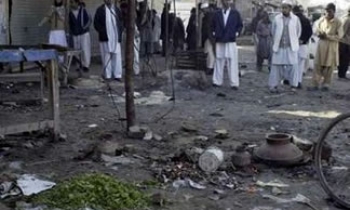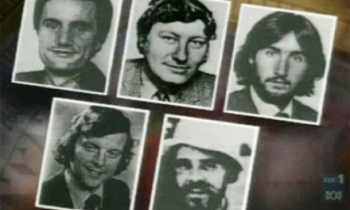COPENHAGEN (Reuters) - Iranian-born barber Farzan Khatami has listened to reports of the anti-Danish protests across the Muslim world this week and he is sure of one thing -- the violence has to stop soon.
He was personally offended by the cartoons satirizing the Prophet Mohammad, and says he feels discrimination on the streets of Copenhagen every day. But enough is enough.
"Fire and stones are taking things too far," he said as he cut hair in his salon in a Muslim district of Copenhagen.
At the same time, he blames Danes and the Danish media for showing ignorance toward Muslims' religious sensibilities and believes demonstrations were justified.
"I've had a job since I came to Denmark 26 years ago, but if I walk out on the street I'm still just an immigrant," he says.
Khatami's views put him in the Muslim middle ground, among those who are outraged by the cartoons but also feel that violence has taken the protests too far. And in that middle ground he is joined by many of Denmark's 180,000 Muslims.
While they have felt the brunt of racial discrimination in a country whose government has cracked down on immigration, they also fear for their future and do not want the protests to spiral out of control, putting them in the crossfire.
Najat El Ouargui, 26, a Muslim theater worker who helped organize a march on Sunday calling for a peaceful resolution to the crisis and more dialogue, said hostility toward immigrants had been rising "for at least two years".
"The cartoons became an emotional trigger, the final straw," she said. "Muslims are tired of being criticized in Denmark. You can't keep picking on one group and not expect them to react."
At prayers, leading Danish imams have been conciliatory, stressing the feelings of gratitude toward Denmark many Danish Muslims feel, while underlining the obligations Muslims have to defend the Prophet against attack.
"EVERYTHING IS MUDDLED"
Some Muslim leaders remain dissatisfied with an apology offered by the Danish paper that first published the cartoons, but have also condemned the spiraling violence.
"I want to be on live TV with the prime minister. I want to explain what we think about the violence," said Ahmed Akkari, spokesman for the Islamic Religious Community in Denmark.
"At the moment, everything is muddled and in the frustration people are being insulted and embassies torched."
While an anti-immigrant party that is the government's ally wants to expel a group of imams, other groups are convinced that Islam and Danish democracy are not incompatible.
A demonstration in support of Denmark and against the attacks on Danish missions was planned for Tuesday by several Muslim groups in Denmark's second largest city, Arhus.
"We hope that the foreign media will show up so that some of the pressure is lifted from Denmark," Rabih Azad-Ahmad from the Multi-Cultural Association said.
Near Copenhagen's central station, the former "red light" district where Halal butchers and kebab shops have replaced many old tattoo parlors and sex shops, Nafi Selmanovski drank coffee and spoke out against the Muslim boycott of Denmark.
He said Muslims in Denmark understood the laws on free speech but believed publishing the drawings was insensitive. Actions like the boycott and embassy attacks could only worsen the situation, however, and Denmark should not reply in kind.
"It's no good using economic pressure -- not importing their oil for example -- that would only worsen things," he said. "I hope that we won't see more now, for both Muslims' and Danes' sake."









